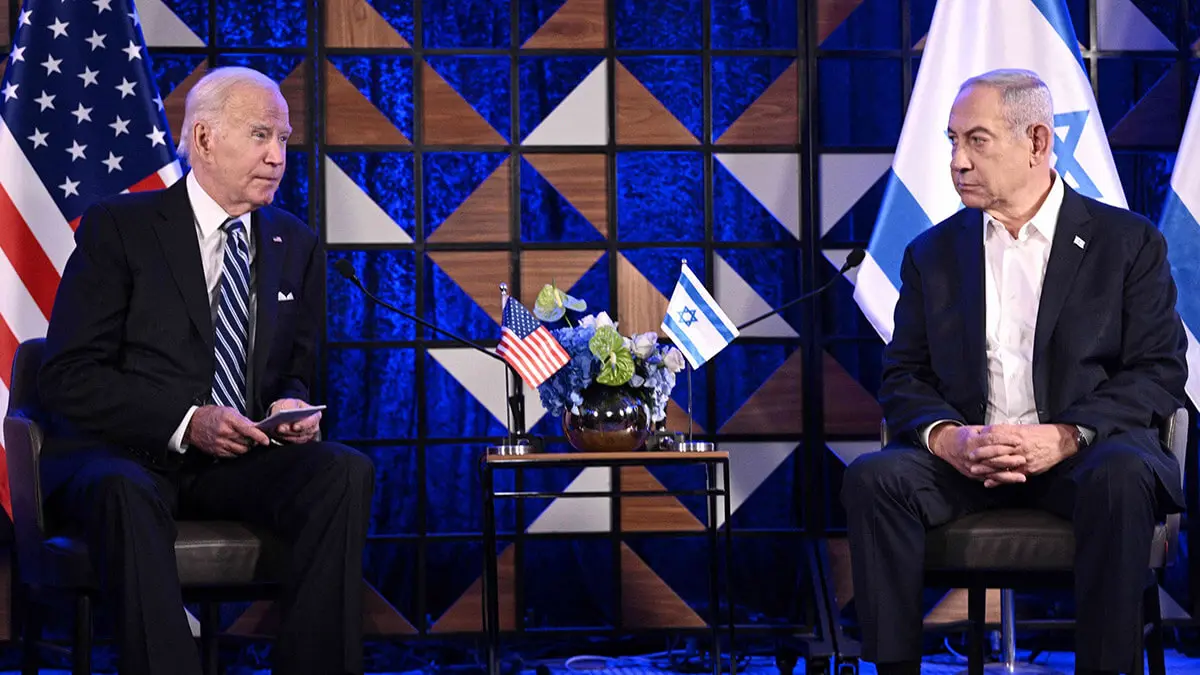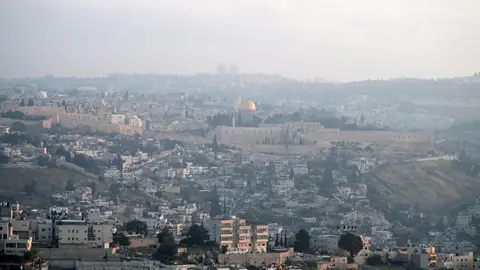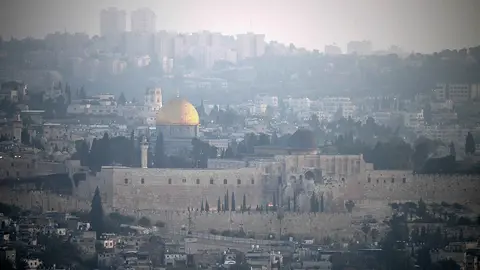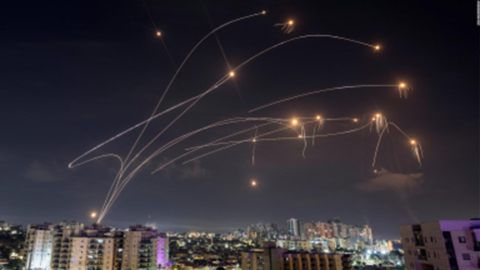US urges Israel to be cautious after massive Iranian attack

The role of the United States was reportedly key in preventing further regional escalation in the Middle East following Iran's attack on Israel. This has been confirmed to the New York Times by several senior US officials, who claim that Israel's decision to retaliate in the early hours of Sunday morning was ruled out after a phone call between Prime Minister Benjamin Netanyahu and US President Joe Biden.
During the conversation, Biden advised Israel to exercise caution and avoid further escalation after its successful defence against Iranian air strikes. "You achieved a victory, seize it," the US president remarked to Netanyahu.
Prime Minister Benjamin Netanyahu is currently speaking with US President Joe Biden, following the deliberations of the Security Cabinet and the War Cabinet. pic.twitter.com/v2oJqMSky4
— Prime Minister of Israel (@IsraeliPM) April 14, 2024
"Israel demonstrated a remarkable ability to defend itself and defeat even unprecedented attacks, sending a clear message to your enemies that they cannot effectively threaten your security," he added.
The Israeli army claimed to have intercepted 99 per cent of the attacks, which, moreover, caused little material damage. Only one small incident was reported at a military base in the south of the country. However, during the Iranian attack, a seven-year-old girl was seriously wounded by shrapnel.
Also, despite reiterating Washington's "ironclad commitment" to Israel, Biden indicated to Netanyahu that the US would not support any Israeli counter-attack against Iran, according to Axios.
A Sa'ar 6-class corvette successfully intercepted a UAV that approached Israeli territory from the southeast using the "C-Dome" Defense System earlier this evening.
— Israel Defense Forces (@IDF) April 14, 2024
Watch the defense system's second operational interception within a week: pic.twitter.com/uTl7i5aAgg
White House National Security Council spokesman John Kirby reaffirmed Biden's remarks, stressing that Washington does not want escalation to escalate. "We're not looking for a wider war with Iran," he added during an interview on NBC.
There are also voices within Israel and the War Cabinet itself that do not seem to support immediate retaliation against Iran, such as Benny Gantz. The former Israeli defence minister noted that Israel will respond when the time comes, while reinforcing the "strategic alliance and regional cooperation" that enabled it to repel Saturday night's Iranian attack.
💥Israeli war cabinet member Benny Gantz: "The event isn't yet over. We will build a regional coalition and we will make Iran pay the price at a time and in a manner that we choose." pic.twitter.com/IvtvUhSeE0
— Noga Tarnopolsky נגה טרנופולסקי نوغا ترنوبولسكي💙 (@NTarnopolsky) April 14, 2024
The UK, the US, as well as Arab countries such as Jordan and Saudi Arabia - which has no diplomatic relations with the Jewish state - helped Israel intercept hundreds of drones sent by the Islamic Republic of Iran in an attack that also included ballistic and cruise missiles.
Gantz stressed the need to build "a regional coalition in the face of the Iranian threat", as well as to "exact" a price from Tehran "in a manner and at a time that is convenient". "Most importantly, in the face of our enemies' desire to harm us, we will unite and become stronger," Gantz said, stressing that Israel had proven itself to be "an anchor of military and technological power and security in the Middle East".
Very unique footage showing an exoatmospheric interception amid the Iranian ballistic missile attack, likely by the Arrow 3 air defense system. pic.twitter.com/wrZNCV01tn
— Emanuel (Mannie) Fabian (@manniefabian) April 14, 2024
However, according to Israeli media, Gantz, as well as Gadi Eisenkot, another Cabinet minister, proposed to counter-attack while the Iranian attack was still underway. This decision was firmly rejected by Netanyahu, as well as by Defence Minister Yoav Gallant, and Israel Defence Forces (IDF) chief Herzi Halevi.
These disagreements remain in the aftermath of the attack as, according to Reuters, top Israeli officials favour retaliation against Iran, but are divided over "the timing and scale of such a response".
Israel calls on the West to designate the Revolutionary Guard as a terrorist group.
For the time being, Israel has begun to press its Western partners to classify the Iranian Revolutionary Guard as a terrorist organisation, something Iranians in exile have been calling for for years.
"It is time to weaken the Iranian regime, designate the IRGC as a terrorist organisation and impose devastating sanctions," said Israel's chief diplomat, Israel Katz, after a call with his British and French counterparts, David Cameron and Stéphane Séjourné.
I spoke today with British Foreign Secretary @David_Cameron and French Foreign Minister @steph_sejourne. I thanked them for their assistance in the thwarting Iranian attack on Israel last night, for their steadfast support, and true friendship in times of need 🇬🇧🇮🇱🇫🇷.
— ישראל כ”ץ Israel Katz (@Israel_katz) April 14, 2024
However, I…
"This attack proves once again what Israel has been saying for years: Iran is behind the terrorist attacks in the region and is also the biggest threat to regional stability and the world order," Katz said. Iran is behind numerous terrorist groups that, in addition to launching attacks against Israel, destabilise the Middle East.
"Like any other country, Israel has the right to defend itself against Iran's massive attack. Israel successfully defended itself against Iran's aggression and will continue to do so in the future," he concluded.











